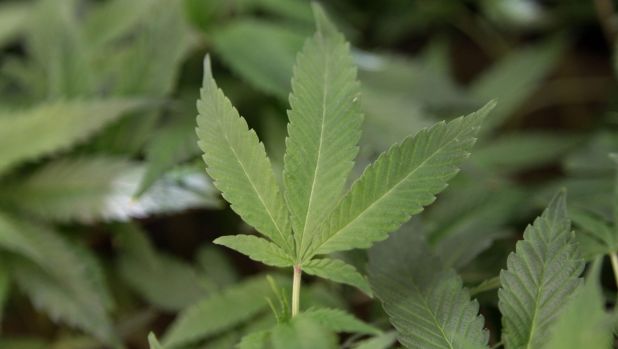
Mental health risk … Those who use marijuana every day experienced are five times more likely to suffer from psychosis compared to people who never use the drug. Photo: AP
London: A British study released on Monday suggested that the risk of psychosis was five times higher for regular users of cannabis, adding to a growing body of evidence linking drug use and mental health disorders.
The six-year study published in the medical journal The Lancet reported on 780 people living in south London, 410 of whom were being treated for conditions including schizophrenia and bipolar disorder.
The report’s lead author was Marta Di Forti from the Institute of Psychiatry, Psychology and Neuroscience at King’s College London, who warned about the growing use of “skunk” – a powerful type of cannabis.
“Compared with those who had never tried cannabis, users of high potency skunk-like cannabis had a threefold increase in risk of psychosis,” she said.
“The risk to those who use every day was even higher – a fivefold increase compared to people who never use,” she added in a statement.
Psychosis is a mental health problem and the symptoms include hallucinations and delusions.
“The results show that psychosis risk in cannabis users depends on both the frequency of use and cannabis potency,” she said.
“The use of hash was not associated with increased risk of psychosis.
“As with smoking tobacco and drinking alcohol you need a clear public message.”
In England, about one new case of psychosis is diagnosed for every 2000 people every year.
“This paper suggests that we could prevent almost one quarter of cases of psychosis if no-one smoked high potency cannabis,” said Robin Murray, professor of psychiatric research at King’s College London and a senior researcher for the study.
“This could save young patients a lot of suffering and the NHS (UK’s National Health Service) a lot of money,” he said.
“It is now well known that use of cannabis increases the risk of psychosis,” Professor Murray said.
“However, sceptics still claim that this is not an important cause of schizophrenia-like psychosis.”
The study was based on 410 patients who reported psychosis between 2005 and 2011. A further 370 healthy participants from the same area of south London were included for comparison.
Researchers said Monday that it was important for doctors to ask not just about drug use but about frequency of drug use to assess the risk.
“This gives more information about whether the user is at risk of mental health problems. Awareness needs to increase for this to happen,” Di Forti said.
A Home Office spokesman said the findings confirmed the government’s hardline approach, adding: “Drugs such as cannabis are illegal because scientific and medical evidence demonstrates they are harmful.”
Several major reports over recent years have pointed to a link between cannabis use and psychosis.
In 2010, a survey of 3800 young adults in Australia found an increased risk of psychosis for those who started smoking cannabis at an early age and used it for several years.
Nearly four per cent of adults around the world use cannabis, according to a paper in The Lancet from 2009, which cited figures from the UN Office on Drugs and Crime.
Meanwhile, speaking at the annual meeting of the American Association for the Advancement of Science in San Jose, Dr Igor Grant, from the University of California, said data pooled from studies involving thousands of participants had failed to demonstrate “meaningful cognitive declines” among recreational users.
He added it was important to distinguish between the immediate and long-term effects of drugs such as THC.
“Brain imaging has produced variable results, with the best designed studies showing null findings,” he said.
“I don’t think there’s any compelling evidence for long-term meaningful effect. Thirty days after smoking, an adult’s memory goes back to normal, as far as these studies show.”
AFP, PA
